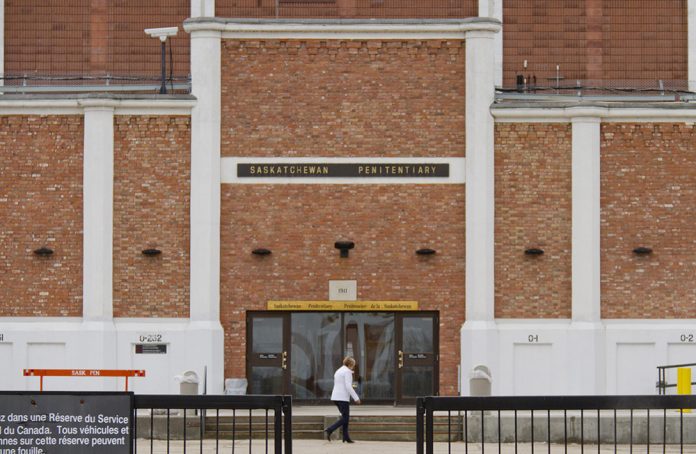Twenty-two inmates and eight staff from Saskatchewan Penitentiary’s medium-security unit have COVID-19 as an outbreak spreads within the institution, Correctional Services Canada said Tuesday.
In a response to questions posed by the Herald, CSC said outbreaks are declared “if there is reason to believe” transmission occurred at the institution. That varies from the provincial declaration of an outbreak, which is made when there are two or more positive cases at the same location or tied to the same event, whether there was spread or not.
The Herald previously reported that Saskatchewan Penitentiary has now seen four outbreaks of COVID-19, more than any other federal institution. In addition to three separate declared outbreaks in the medium-security unit, there has been an outbreak in the facility’s maximum-security unit as well.
One of those outbreaks occurred last December. It resulted in dozens of positive tests, an isolation order for staff over Christmas and one death.
Outbreaks are declared over when two incubation periods go by, which is 28 days after the date the last case started showing symptoms.
There have been suggestions that the outbreaks at the institution could have been caused by transferring patients in from provincial institutions. Saskatoon and Regina Correctional Centre both have declared outbreaks, as does the Prince Albert Youth Residence.
“CSC continues to fulfill its obligations with regard to facilitating transfers between provincial correctional centres and CSC institutions,” the agency said in a written statement.
“These transfers are facilitated within established policy guidelines, which includes COVID-19 testing for all new admissions upon their arrival as part of their pre-screening process.”
CSC said new admissions are kept separate from the established population — regardless of where they are transferred from.
Saskatchewan Penitentiary has measures in place to prevent spread, including medically isolating positive inmates, modified routines, active screening and health checks, increased use of PPE, enhanced cleaning of disinfecting measures and mass testing of staff and offenders, CSC said.
“These have been unprecedented times – not only for Canadians, but for organizations like CSC who continue to operate 24/7 during the pandemic,” the statement said.
“Managing the effects of this pandemic, considering that correctional institutions are congregated living environments, has required extraordinary measures. Our employees continue to show strength and dedication in keeping up with these measures and are working tirelessly, as a team, to prevent and minimize the spread of this virus. Inmates continue to collaborate with staff in following the measures in place.”
Vaccines are available to all inmates, CSC said, along with employees who work for federal correctional institutions who have not had the opportunity to receive them from the province.
Correctional officers are not currently included on the list of priority groups for vaccinations in Saskatchewan, though that will change once all residents aged 40 and over become eligible for vaccines. That change is expected to take place Friday.
Currently, inmates in provincial facilities cannot be vaccinated unless they qualify under the age-based rollout.
Doctors, though, have been advocating for the inclusion of inmates of provincial jails, as they are one of the only communal living settings not prioritized by the current provincial plan.
The province has said that there aren’t enough vaccines to go around, and said that prioritizing inmate vaccinations would mean someone else has to go without.
During a physician’s town hall last week, doctors were told that correctional settings “have been really prominent” in terms of case production numbers and that the outbreaks in Regina, Saskatoon and in Saskatchewan Penitentiary are all driven by variants of concern.
“Those are really outbreaks of concern,” physicians heard.
Not vaccinating all congregate living facilities “creates a risk for increased acute demand”, said a slide presented to physicians Thursday. The presentation focused on increasing demand on the health system as Saskatchewan weathers its third pandemic wave, driven primarily by the variants of concern, which are more transmissible and deadlier than the original strain. Regina hospitals are already triaging surgery patients as there isn’t enough ICU capacity to accommodate patients who need a bed after an intensive surgery.
Workplaces, including correctional centres, continue to be one of the top sources of COVID-19 spread in Saskatchewan, along with household exposure.


